
The combination of avutometinib and defactinib produced durable responses in recurrent low-grade serous ovarian cancer.

Your AI-Trained Oncology Knowledge Connection!


The combination of avutometinib and defactinib produced durable responses in recurrent low-grade serous ovarian cancer.

Dostarlimab plus chemotherapy improved 24-month DOR rates vs placebo plus chemotherapy in patients with primary advanced or recurrent endometrial cancer.

Findings from a real-world study confirm the efficacy and safety of dostarlimab plus chemotherapy in advanced endometrial cancer.

The combination of pembrolizumab and lenvatinib showed promising activity including durable responses in patients with platinum-resistant HGSOC.

Shannon Westin, MD, MPH, FACOG, discusses the efficacy of durvalumab plus chemotherapy and olaparib in pMMR recurrent endometrial cancer.
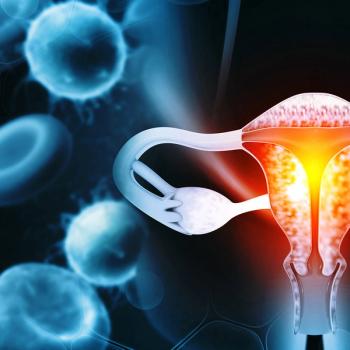
Patients with endometrial cancer had slightly higher CR rates with metformin plus a levonorgestrel-releasing IUD vs historical data with the IUD alone.

Jordyn Silverstein, MD, discusses the efficacy of abemaciclib plus hormonal therapy in recurrent ovarian cancer or endometroid endometrial cancer.

Frontline maintenance with niraparib and bevacizumab showed efficacy and safety profiles that are in line with similar regimens in advanced ovarian cancer.
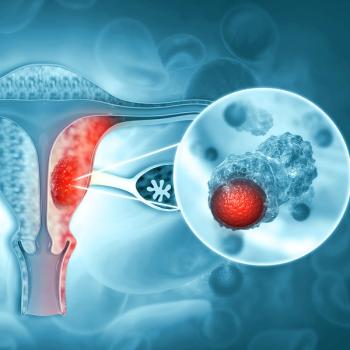
Puxitatug samrotecan demonstrated preliminary efficacy and manageable safety in advanced or metastatic endometrial cancer.

Luveltamab tazevibulin was active and safe in patients with platinum-resistant ovarian cancer and a FRα expression of at least 25%.

BVAC-C was effective with a manageable safety profile when combined with durvalumab in patients with recurrent HPV-positive cervical cancer.
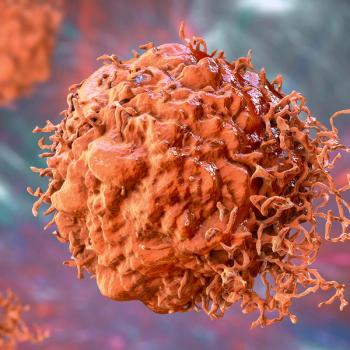
Mirvetuximab soravtansine continued to showcase superior OS, PFS, ORR, & DOR benefits over chemotherapy in FRα-positive platinum-resistant ovarian cancer.

Patients with cyclin E1–positive platinum-resistant ovarian cancer experienced a greater response to azenosertib vs the overall DENALI population.

The combination of avutometinib and defactinib has previously shown activity in patients with low-grade serous ovarian cancer.

The KEYLYNK-001 trial found improved PFS among patients with advanced ovarian cancer given pembrolizumab/olaparib.

Rachel N. Grisham, MD, discusses the efficacy of avutometinib plus defactinib in patients with advanced or recurrent gynecologic mesonephric cancer.
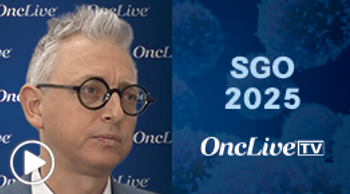
Toon Van Gorp, MD, PhD, discusses the efficacy of mirvetuximab soravtansine in FRα-positive platinum-resistant ovarian cancer after 30.5 months of follow-up.

The combination of zimberelimab and lenvatinib had antitumor activity and a manageable safety profile in pretreated advanced cervical cancer.

Afuresertib combined with paclitaxel did not elicit PFS or OS benefits vs paclitaxel alone in patients with unselected platinum-resistant ovarian cancer.

Olaparib maintenance following durvalumab plus chemotherapy improved PFS in different subgroups of pMMR endometrial cancer.

The addition of pembrolizumab to chemoradiotherapy prolonged survival and time to second progression in patients with locally advanced cervical cancer.

Cadonilimab plus lenvatinib showed promise as therapy for patients with advanced endometrial cancer and disease progression on prior platinum therapy.

Nivolumab elicited PR/CRs in all patients treated with resectable dMMR endometrial cancer and no patients experienced disease recurrence during follow-up.

Preclinical cytotoxicity was demonstrated with anti-CD38-CAR-gamma-delta T cells in multiple myeloma.

MT-8421, a novel engineered toxin body targeting CTLA-4, was not associated with grade 4 or 5 toxicities in patients with select advanced solid tumors.

SAR444200-mediated targeting of GPC3-expressing solid tumors was safe and showed early signs of antitumor activity in a phase 1/2 study.

The feasibility and safety of treatment with SAR443216 support the further investigation of this agent in patients with advanced HER2-positive tumors.

T-DXd with or without pertuzumab produced responses in first-line, HER2-positive metastatic breast cancer.

Frontline treatment with datopotamab deruxtecan plus durvalumab with/without carboplatin proved active in advanced NSCLC without actionable alterations.
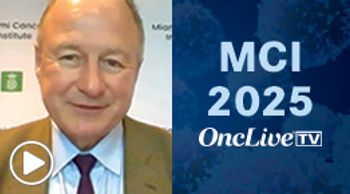
Paul G. Richardson, MD, discusses the role of triplet regimens as the current standard of care in newly diagnosed multiple myeloma.